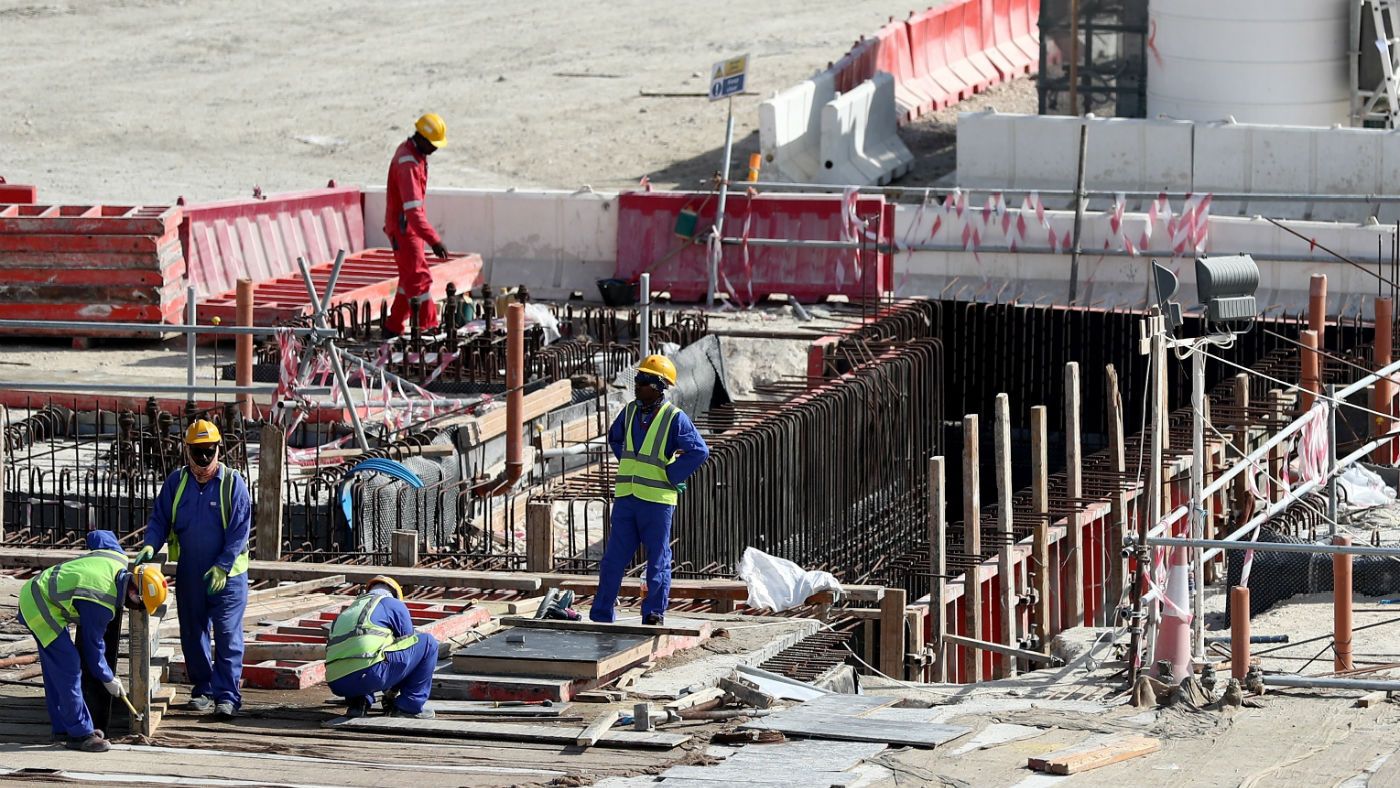Qatar 2022 World Cup: migrants still at work despite ban on gatherings
With 1,000 days to go until the Fifa mega-event, it’s ‘business as usual’ on the crowded construction sites

A free daily email with the biggest news stories of the day – and the best features from TheWeek.com
You are now subscribed
Your newsletter sign-up was successful
Qatar’s government banned all forms of gatherings this week in a bid to stop the spread of the Covid-19 coronavirus - but for migrants working on Fifa 2022 World Cup construction sites, the measures don’t apply.
It’s “business as usual” for building projects, says The Guardian, in its latest “exploitation in focus” feature. And despite the ban on gatherings, the paper says packed buses could be seen heading to the sites where thousands of workers “continue to toil” in the run-up to the Fifa mega-event.
After a controversial winning bid for the 2022 World Cup, Qatar’s preparations have also regularly been under the microscope, with workers’ living conditions the subject of studies by human rights groups.
The Week
Escape your echo chamber. Get the facts behind the news, plus analysis from multiple perspectives.

Sign up for The Week's Free Newsletters
From our morning news briefing to a weekly Good News Newsletter, get the best of The Week delivered directly to your inbox.
From our morning news briefing to a weekly Good News Newsletter, get the best of The Week delivered directly to your inbox.
The Guardian’s latest report sheds more light on the migrants and the challenges they now face amid the new coronavirus which has spread across the world.
–––––––––––––––––––––––––––––––For analysis of the biggest sport stories - and a concise, balanced take on the week’s news - try The Week magazine. Start your trial today –––––––––––––––––––––––––––––––
537 cases, zero deaths
The latest figures from the John Hopkins Coronavirus Resource Center state that Qatar has recorded 537 cases of the virus, but no deaths. According to Reuters, the Gulf state’s old industrial zone has “emerged as a hot spot for the coronavirus” and is putting many migrant workers who live and work in the area at risk.
A free daily email with the biggest news stories of the day – and the best features from TheWeek.com
Last week the news agency contacted the Qatar Government Communication Office (GCO) to enquire about where the cases had been located.
The GCO said: “The majority of [coronavirus] cases in Qatar to date have been located in the Industrial Area. Every effort is being made to prevent the spread of the disease in Qatar and protect every member of the population. As a result, some areas of Qatar have been cordoned off to contain the virus.”
However, the GCO did not confirm how many people were under lockdown or the number of migrant workers who had tested positive for Covid-19.
‘Not immune to the virus’
Labourers told The Guardian that although the long construction shifts continue there are only limited health checks in place. The paper says they are particularly vulnerable because of their cramped living conditions and “how closely they interact with others in labour camps and on the job”.
Some migrants say they have no choice but to work. A Kenyan construction worker, who is not employed on the World Cup project, said: “I worry a lot about getting the virus, but I need the money.”
Meanwhile, in response to the Qatari government’s measures, one social media user wrote: “How will construction workers maintain social distancing? No one cares about our safety. Do you think we don’t want to live? Do you think we don’t want to see our families?”
Qatar has the third-highest number in the Gulf region, behind Iran (29,406 cases) and Saudi Arabia (1,012).
In a plea for stricter measures another worker added: “We are not robots. We are not immune to the virus.”
–––––––––––––––––––––––––––––––For analysis of the biggest sport stories - and a concise, balanced take on the week’s news - try The Week magazine. Start your trial today –––––––––––––––––––––––––––––––